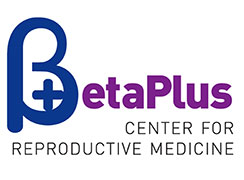The first step an obese woman needs to make if she wants to get pregnant is to lose body weight. Almost half of women with PCOS are obese. Obesity is defined as having the body mass index (BMI) above 25. A large number of authors have researched in their many studies the effects of obesity on reproduction. The common conclusion they have reached has been that obesity leads to decrease in woman’s reproductive ability. In plain words, this means that the number of ovulations is reduced, ovulation induction is less successful and patients often don’t react to treatments. In a group of obese patients pregnancies are fewer and riskier.
Usually, weight loss is recommended to women whose BMI is above 30, but in the abundance of new research the limit has been set to BMI of 27 and weight loss should range from 5 to 10%. Weight loss reduces the insulin level which leads to lower testosterone level and spontaneous ovulations occur. In 1998 and on a sample of 67 patients, Clark has proven that 5-10% body weight loss regulates the ovulation in 90% of patients resulting in 78% of pregnancies in the first 6 months afterwards. Therefore, weight loss leads to improvements in fertility treatment results and reduces complications such as resistance to fertility treatment or miscarriage.
Weight loss in women with PCOS is hard and often unsuccessful because their metabolism makes it difficult for them to lose weight. The type of dieting necessary to achieve the desired loss in weight for these patients is not clearly defined, but it is considered that reducing the carbohydrate input (not only sweets, but also bread, potatoes, rice and grains) and focusing on the Mediterranean diet (boiled meat, fish, vegetables) gives the most efficient results.




